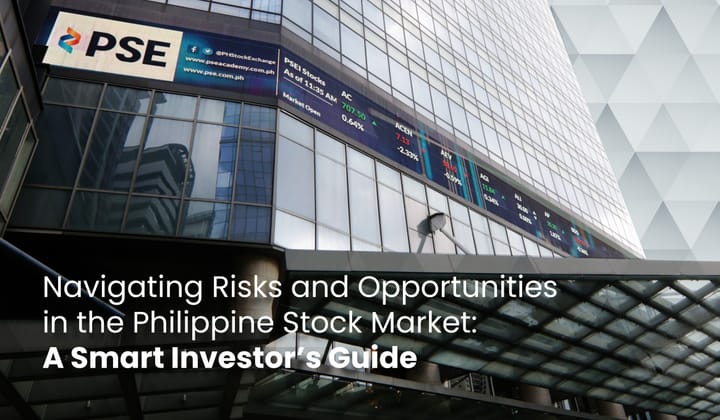10 Things To Do When the Market Is Not In Your Favor
Market downturns are not a signal to panic—they present opportunities for investors to reassess their strategies, manage risks, and set themselves up for long-term success. Here’s what you should do when the market is not in your favor.

Investing in the Philippine stock market comes with inevitable ups and downs. While it’s easy to stay optimistic during a bull run, navigating a market downturn can be challenging, especially for Filipino investors who may be influenced by global economic trends, local political developments, and currency fluctuations. However, market downturns are not a signal to panic—they present opportunities for investors to reassess their strategies, manage risks, and set themselves up for long-term success. Here’s what you should do when the market is not in your favor.
1. Stay Calm and Avoid Emotional Decisions

When markets dip, it’s natural to feel anxious. However, emotional decisions often lead to poor investment choices, such as panic selling or making impulsive trades. Instead of reacting out of fear, take a step back and assess the situation logically. Markets fluctuate, and downturns are a normal part of the cycle.
2. Reevaluate Your Portfolio

Use this time to review your investment portfolio. Are your assets diversified enough? Do your holdings align with your risk tolerance and long-term goals? Consider rebalancing your portfolio by adjusting your asset allocation. If certain stocks or sectors are underperforming, evaluate whether they still have strong fundamentals or if it’s time to shift your investments.
3. Focus on Long-Term Goals

Short-term market fluctuations shouldn’t derail your long-term investment strategy. If you’re investing for retirement or financial independence through the Philippine Stock Exchange (PSE) or mutual funds, downturns can be an opportunity to buy quality stocks at lower prices. Keep your eyes on your long-term objectives rather than short-term market movements.
4. Consider Peso-Cost Averaging (PCA)

Instead of trying to time the market, consider a peso-cost averaging strategy. This approach involves investing a fixed amount of money at regular intervals, regardless of market conditions. Over time, this can reduce the impact of market volatility and lower the average cost of your investments.
5. Look for Opportunities

Market downturns can present buying opportunities. Strong, well-established companies listed on the PSE often become undervalued during bear markets. Research and identify fundamentally sound stocks that are trading at a discount. If you have the capital and confidence, this could be a great time to build your portfolio.
6. Stay Informed but Avoid Overconsumption of News

While staying updated on market trends is important, constantly checking stock prices and reading negative headlines can lead to unnecessary stress. Focus on reliable financial sources such as the PSE website, Philippine business news platforms, and insights from credible analysts.
7. Diversify Your Investments

Diversification helps mitigate risk during market downturns. If your portfolio is too concentrated in one sector, consider adding fixed-income securities, index funds, or alternative assets like real estate investment trusts (REITs) to balance your holdings.
8. Keep Your Emergency Fund Intact

One of the worst things an investor can do in a market downturn is to sell investments at a loss due to financial strain. Having an emergency fund with at least three to six months’ worth of expenses ensures you won’t need to liquidate assets at an unfavorable time.
9. Hold Cash and Wait for Stability

Keeping cash on hand during uncertain times can be wise. Instead of making quick investment decisions, wait for the market to stabilize before reinvesting. This way, you’re ready to seize better opportunities when they arise.
10. Be Patient and Trust the Market Cycle

History shows that the Philippine stock market tends to recover from downturns over time. While past performance is not a guarantee of future results, long-term investors who stay patient and committed to their strategies typically see positive returns.
Market downturns can be unsettling, but they also offer learning experiences and opportunities for growth. By staying calm, reassessing your portfolio, and sticking to a disciplined investment strategy, you can navigate unfavorable market conditions and set yourself up for future success.
If you need expert guidance tailored to your financial goals, our Wealth Executives are here to help. Contact us at sbxwealth@seedbox.ph and let’s work together to keep your investments on track.



